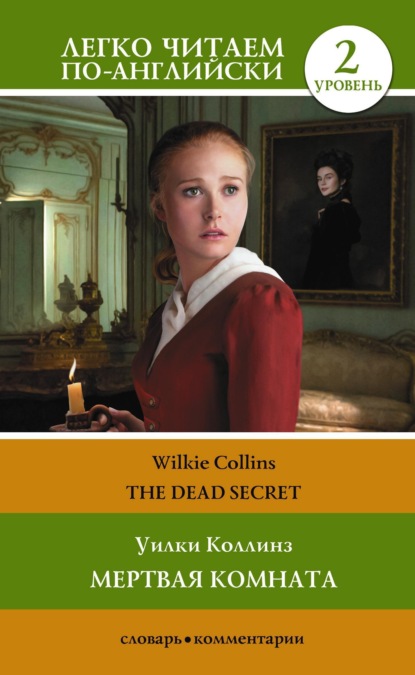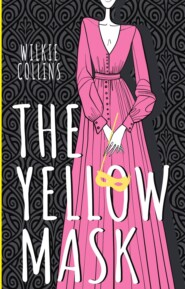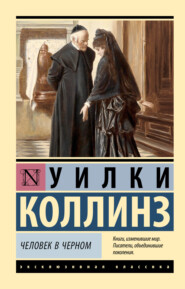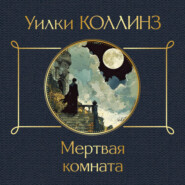По всем вопросам обращайтесь на: info@litportal.ru
(©) 2003-2025.
✖
Мертвая комната. Уровень 2 / The Dead Secret
Настройки чтения
Размер шрифта
Высота строк
Поля
He paused.
“Go on, Lenny.”
“Rosamond,” he whispered, “Your father will pass his days happily with us at Porthgenna. We may all live in the north rooms for the future. Is the loss of your mother the only sad association he has with the place?”
“Not quite. There is another association, which has never been mentioned, but which I may tell you, because there are no secrets between us. My mother had a favorite maid who lived with her from the time of her marriage. She was the only person present in her room when she died. Well, on the morning of my mother's death, she disappeared from the house. She left a mysterious letter to my father. She wrote about a Secret which she was charged to divulge to her master when her mistress was no more. And she added that she was afraid to mention this secret. Our neighbors and servants all thought that the woman was mad; but my father never agreed with them. I know that he has neither destroyed nor forgotten the letter.”
“A strange event, Rosamond.”
“Oh, Lenny, the servants and the neighbors were right – the woman was mad. Anyway, however, it was certainly a singular event in our family. All old houses have their romance – and that is the romance of our house. But years and years have passed since then. I have no fear that my dear, good father will spoil our plans. Just give him a new garden at Porthgenna, where he can walk, and give him new north rooms to live in! But all this is in the future; let us get back to the present time. When shall we go to Porthgenna, Lenny?”
“We have three weeks more to stay here, Rosamond.”
“Yes; and then we must go back to Long Beckley.”
“So, Rosamond, write to Mr. Horlock then – and appoint a meeting in two months' time at the old house.”
Rosamond sat down at the table, and dipped her pen in the ink with a little flourish of triumph.
“In two months,” she exclaimed joyfully, “I shall see the dear old place again!”
Chapter VII
Andrew Treverton's misanthropy was genuine. He was an incorrigible hater of mankind. He was a phenomenon in the nursery, a butt at school, and a victim at college.
At school, Andrew became fond of one among his school-fellows. Nobody could discover the smallest reason for it, but it was nevertheless a notorious fact that Andrew's pocket-money was always at this boy's service. But when his purse grew light in his friend's hand, the hero of his simple admiration abandoned him to embarrassment, to ridicule, and to solitude, without a word of farewell.
Andrew left home to travel. The life he led, the company he kept, during his long residence abroad, did him permanent and fatal harm. When he at last returned to England, he believed in nothing. At this period of his life, his only chance for the future lay in the good results which his brother's influence over him produced. But the quarrel occasioned by Captain Treverton's marriage broke it off forever. From that time, for all social interests and purposes, Andrew was a lost man.
“My dearest friend forsook and cheated me,” he said. “My only brother has quarreled with me for the sake of an actress. What to expect of the rest of mankind after that? I have suffered twice for my belief in others – I will never suffer again. My business in this world is to eat, drink, sleep, and die! “
After his brother's marriage, Andrew lived in the neighborhood of Bayswater. He bought a cottage and he was living like a miser. He had got an old man-servant, named Shrowl, who was even a greater enemy to mankind than himself.
His contempt for his own wealth was quite as hearty as his contempt for the wealth of his neighbors. Andrew Treverton and Shrowl sustained life with the least possible dependence on the race of men who, as they conceived, cheated them infamously.
They ate like primitive men, and they lived in all other respects like primitive men also. They had pots, pans, and pipkins, two deal tables, two chairs, two old sofas, two short pipes, and two long cloaks. They had no carpets and bedsteads, no cabinets, book-cases, or ornamental knickknacks of any kind, no laundress. When either of the two wanted to eat and drink, he cut off his crust of bread, cooked his bit of meat, drew his drop of beer, without the slightest reference to the other. When either of the two needed a clean shirt, which was very seldom, he went and washed one for himself. And when either of the two wanted to go to sleep, he wrapped himself up in his cloak, lay down on one of the sofas, and took what repose he required, early in the evening or late in the morning, just as he pleased.
Sometimes they sat down opposite each other, and smoked for hours, generally without a word. Whenever they did speak, they quarreled.
On a certain morning, Mr. Treverton descended from the upper regions of the cottage to one of the rooms on the ground-floor. Like his elder brother, he was a tall, well-built man. But his bony, haggard, sallow face did not bear the slightest resemblance to the handsome, open, sunburnt face of the Captain. With unbrushed hair and unwashed face, with a tangled gray beard, and an old, patched, dirty flannel dressing-gown this descendant of a wealthy and ancient family looked as if his birthplace was the work-house.
It was breakfast-time. Mr. Treverton took a greasy knife out of the pocket of his dressing-gown, cut off a rasher of bacon, jerked the gridiron onto the fire, and began to cook his breakfast. The door opened, and Shrowl entered the room, with his pipe in his mouth.
Neither master nor servant exchanged a word or took the smallest notice of each other on first meeting. Mr. Treverton finished his cooking, took his bacon to the table, and began to eat his breakfast. Then he looked up at Shrowl, who was at that moment opening his knife and approaching the bacon with greedy eyes.
“What do you mean by that?” asked Mr. Treverton and pointed with indignant surprise at Shrowl's breast. “You ugly brute, you've got a clean shirt on!”
“Thank you, Sir,” said Shrowl. “This is a joyful occasion, it's my master's birthday. Many happy returns, Sir. Perhaps you think I forget that today is your birthday? How old are you today? It's a long time ago, Sir, since you were a plump little boy, with a frill round your neck, and marbles in your pocket, and kisses and presents from Pa and Ma and uncle and aunt, on your birthday. Don't you be afraid of me. I will put this shirt on your next birthday; or your funeral, Sir.”
“Don't waste a clean shirt on my funeral,” retorted Mr. Treverton. “I won't left you any money in my will, Shrowl. You'll be on your way to the work-house when I'm on my way to the grave.”
“Have you really made your will at last, Sir?” inquired Shrowl. “I humbly beg pardon, but I always thought you were afraid to do it.”
Mr. Treverton thumped his crust of bread on the table, and looked up angrily at Shrowl.
“You fool!” said he. “I don't make it, and I won't make it, on principle[16 - on principle – из принципа, по убеждению]. Rich men who leave money behind them are the farmers who raise the crop of human wickedness. When a man is bad, if you want to make him worse, leave him a legacy!”
Shrowl chuckled sarcastically.
“Whom will get my money?” cried Mr. Treverton. “My brother, who thinks me a brute now; who thinks me a fool then?! He will spend all my money among crazy people and actors? Or the child of that actress, whom I have never seen. Mr. Shrowl! I laugh when I know I'm not going to leave you a sixpence.”
Shrowl got a little irritated.
“What's the use of talking nonsense about your money?” he said. “You must leave it to somebody.”
“Yes, I will,” said Mr. Treverton. “I will leave it, as I have told you over and over again, to the first Somebody I can find who honestly despises money.”
“That means nobody,” grunted Shrowl.
“I know what to do!” retorted his master.
Before Shrowl uttered a word, there was a ring at the gate-bell of the cottage.
“Go out,” said Mr. Treverton, “and see what that is.”
Mr. Treverton filled and lit his pipe. Soon Shrowl returned, and reported a man visitor.
“I picked up his letter,” said Shrowl. “He poked it under the gate and went away. Here it is.”
As Mr. Treverton opened the envelope, two slips dropped out. One fell on the table before which he was sitting; the other fluttered to the floor. This last slip Shrowl picked up and looked over its contents.
Mr. Treverton began to read the letter. The letter was not long. He read it down to the signature, and went through it again from the beginning.
“Shrowl,” he said, very quietly, “my brother, the Captain, is drowned.”
“I know,” answered Shrowl.
“I wonder what he thought about me when he was dying?” said Mr. Treverton, abstractedly.
“He didn't waste a thought on you or anybody else,” remarked Shrowl.
“Damn that woman!” muttered Mr. Treverton.
He read the letter again:
“Sir,
As the old legal adviser and faithful friend of your family, I acquaint you with the sad news of your brother's death. This deplorable event occurred on board the ship of which he was captain, during a gale of wind. I enclose a detailed account of the shipwreck, extracted from The Times, by which you will see that your brother died nobly. I also send a slip from the local Cornish paper.
“Go on, Lenny.”
“Rosamond,” he whispered, “Your father will pass his days happily with us at Porthgenna. We may all live in the north rooms for the future. Is the loss of your mother the only sad association he has with the place?”
“Not quite. There is another association, which has never been mentioned, but which I may tell you, because there are no secrets between us. My mother had a favorite maid who lived with her from the time of her marriage. She was the only person present in her room when she died. Well, on the morning of my mother's death, she disappeared from the house. She left a mysterious letter to my father. She wrote about a Secret which she was charged to divulge to her master when her mistress was no more. And she added that she was afraid to mention this secret. Our neighbors and servants all thought that the woman was mad; but my father never agreed with them. I know that he has neither destroyed nor forgotten the letter.”
“A strange event, Rosamond.”
“Oh, Lenny, the servants and the neighbors were right – the woman was mad. Anyway, however, it was certainly a singular event in our family. All old houses have their romance – and that is the romance of our house. But years and years have passed since then. I have no fear that my dear, good father will spoil our plans. Just give him a new garden at Porthgenna, where he can walk, and give him new north rooms to live in! But all this is in the future; let us get back to the present time. When shall we go to Porthgenna, Lenny?”
“We have three weeks more to stay here, Rosamond.”
“Yes; and then we must go back to Long Beckley.”
“So, Rosamond, write to Mr. Horlock then – and appoint a meeting in two months' time at the old house.”
Rosamond sat down at the table, and dipped her pen in the ink with a little flourish of triumph.
“In two months,” she exclaimed joyfully, “I shall see the dear old place again!”
Chapter VII
Andrew Treverton's misanthropy was genuine. He was an incorrigible hater of mankind. He was a phenomenon in the nursery, a butt at school, and a victim at college.
At school, Andrew became fond of one among his school-fellows. Nobody could discover the smallest reason for it, but it was nevertheless a notorious fact that Andrew's pocket-money was always at this boy's service. But when his purse grew light in his friend's hand, the hero of his simple admiration abandoned him to embarrassment, to ridicule, and to solitude, without a word of farewell.
Andrew left home to travel. The life he led, the company he kept, during his long residence abroad, did him permanent and fatal harm. When he at last returned to England, he believed in nothing. At this period of his life, his only chance for the future lay in the good results which his brother's influence over him produced. But the quarrel occasioned by Captain Treverton's marriage broke it off forever. From that time, for all social interests and purposes, Andrew was a lost man.
“My dearest friend forsook and cheated me,” he said. “My only brother has quarreled with me for the sake of an actress. What to expect of the rest of mankind after that? I have suffered twice for my belief in others – I will never suffer again. My business in this world is to eat, drink, sleep, and die! “
After his brother's marriage, Andrew lived in the neighborhood of Bayswater. He bought a cottage and he was living like a miser. He had got an old man-servant, named Shrowl, who was even a greater enemy to mankind than himself.
His contempt for his own wealth was quite as hearty as his contempt for the wealth of his neighbors. Andrew Treverton and Shrowl sustained life with the least possible dependence on the race of men who, as they conceived, cheated them infamously.
They ate like primitive men, and they lived in all other respects like primitive men also. They had pots, pans, and pipkins, two deal tables, two chairs, two old sofas, two short pipes, and two long cloaks. They had no carpets and bedsteads, no cabinets, book-cases, or ornamental knickknacks of any kind, no laundress. When either of the two wanted to eat and drink, he cut off his crust of bread, cooked his bit of meat, drew his drop of beer, without the slightest reference to the other. When either of the two needed a clean shirt, which was very seldom, he went and washed one for himself. And when either of the two wanted to go to sleep, he wrapped himself up in his cloak, lay down on one of the sofas, and took what repose he required, early in the evening or late in the morning, just as he pleased.
Sometimes they sat down opposite each other, and smoked for hours, generally without a word. Whenever they did speak, they quarreled.
On a certain morning, Mr. Treverton descended from the upper regions of the cottage to one of the rooms on the ground-floor. Like his elder brother, he was a tall, well-built man. But his bony, haggard, sallow face did not bear the slightest resemblance to the handsome, open, sunburnt face of the Captain. With unbrushed hair and unwashed face, with a tangled gray beard, and an old, patched, dirty flannel dressing-gown this descendant of a wealthy and ancient family looked as if his birthplace was the work-house.
It was breakfast-time. Mr. Treverton took a greasy knife out of the pocket of his dressing-gown, cut off a rasher of bacon, jerked the gridiron onto the fire, and began to cook his breakfast. The door opened, and Shrowl entered the room, with his pipe in his mouth.
Neither master nor servant exchanged a word or took the smallest notice of each other on first meeting. Mr. Treverton finished his cooking, took his bacon to the table, and began to eat his breakfast. Then he looked up at Shrowl, who was at that moment opening his knife and approaching the bacon with greedy eyes.
“What do you mean by that?” asked Mr. Treverton and pointed with indignant surprise at Shrowl's breast. “You ugly brute, you've got a clean shirt on!”
“Thank you, Sir,” said Shrowl. “This is a joyful occasion, it's my master's birthday. Many happy returns, Sir. Perhaps you think I forget that today is your birthday? How old are you today? It's a long time ago, Sir, since you were a plump little boy, with a frill round your neck, and marbles in your pocket, and kisses and presents from Pa and Ma and uncle and aunt, on your birthday. Don't you be afraid of me. I will put this shirt on your next birthday; or your funeral, Sir.”
“Don't waste a clean shirt on my funeral,” retorted Mr. Treverton. “I won't left you any money in my will, Shrowl. You'll be on your way to the work-house when I'm on my way to the grave.”
“Have you really made your will at last, Sir?” inquired Shrowl. “I humbly beg pardon, but I always thought you were afraid to do it.”
Mr. Treverton thumped his crust of bread on the table, and looked up angrily at Shrowl.
“You fool!” said he. “I don't make it, and I won't make it, on principle[16 - on principle – из принципа, по убеждению]. Rich men who leave money behind them are the farmers who raise the crop of human wickedness. When a man is bad, if you want to make him worse, leave him a legacy!”
Shrowl chuckled sarcastically.
“Whom will get my money?” cried Mr. Treverton. “My brother, who thinks me a brute now; who thinks me a fool then?! He will spend all my money among crazy people and actors? Or the child of that actress, whom I have never seen. Mr. Shrowl! I laugh when I know I'm not going to leave you a sixpence.”
Shrowl got a little irritated.
“What's the use of talking nonsense about your money?” he said. “You must leave it to somebody.”
“Yes, I will,” said Mr. Treverton. “I will leave it, as I have told you over and over again, to the first Somebody I can find who honestly despises money.”
“That means nobody,” grunted Shrowl.
“I know what to do!” retorted his master.
Before Shrowl uttered a word, there was a ring at the gate-bell of the cottage.
“Go out,” said Mr. Treverton, “and see what that is.”
Mr. Treverton filled and lit his pipe. Soon Shrowl returned, and reported a man visitor.
“I picked up his letter,” said Shrowl. “He poked it under the gate and went away. Here it is.”
As Mr. Treverton opened the envelope, two slips dropped out. One fell on the table before which he was sitting; the other fluttered to the floor. This last slip Shrowl picked up and looked over its contents.
Mr. Treverton began to read the letter. The letter was not long. He read it down to the signature, and went through it again from the beginning.
“Shrowl,” he said, very quietly, “my brother, the Captain, is drowned.”
“I know,” answered Shrowl.
“I wonder what he thought about me when he was dying?” said Mr. Treverton, abstractedly.
“He didn't waste a thought on you or anybody else,” remarked Shrowl.
“Damn that woman!” muttered Mr. Treverton.
He read the letter again:
“Sir,
As the old legal adviser and faithful friend of your family, I acquaint you with the sad news of your brother's death. This deplorable event occurred on board the ship of which he was captain, during a gale of wind. I enclose a detailed account of the shipwreck, extracted from The Times, by which you will see that your brother died nobly. I also send a slip from the local Cornish paper.

















